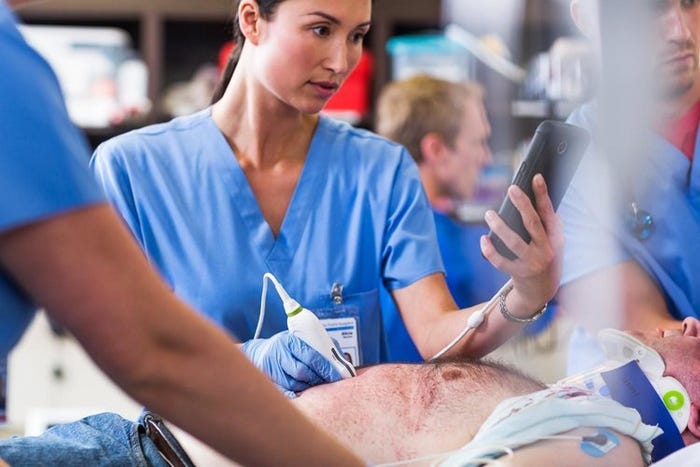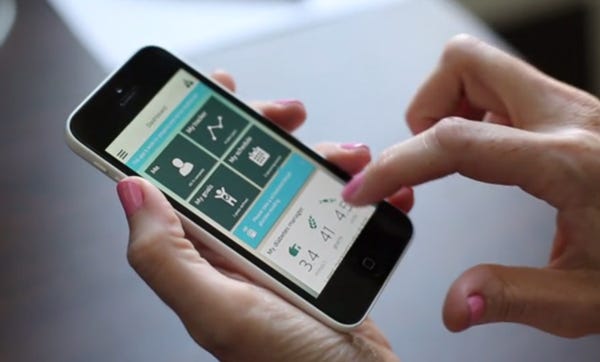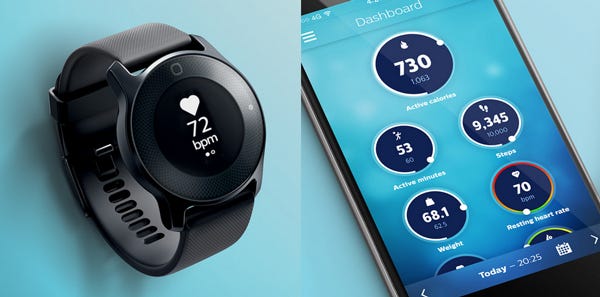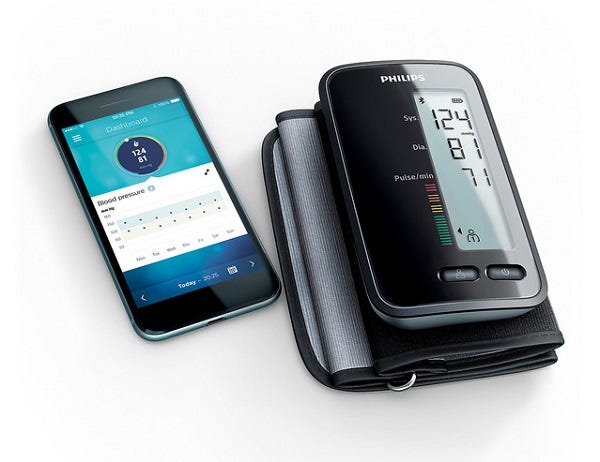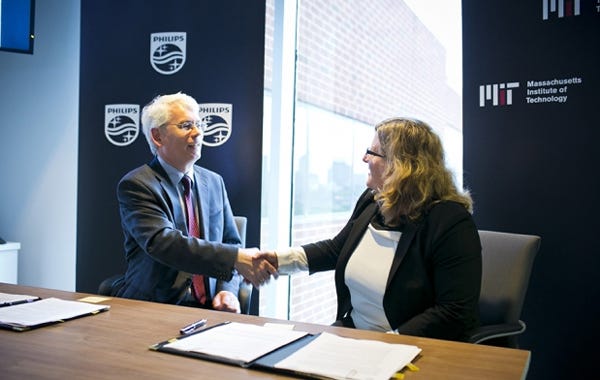How Philips Is Planning Mobile Health Success
September 17, 2015
A string of announcements this year show Royal Philips seeking to turn its situation around through major plays in mobile health and overall innovation.
Chris Newmarker
Updated November 24, 2015
One of the world's largest medical device companies has been making moves this year to become a major player in mobile health.
Time will tell whether Royal Philips' strategy will turn its business around. Over the first nine months of 2015, the company's stock was one of the worst performing among large medical device companies. Focus could potentially improve after a planned separation of the company's healthcare and lighting businesses.
Here are seven recent reasons to think that Philips best days are ahead of it when it comes to healthcare:
1. App-based Ultrasound
Philips has also announced a unique ultrasound system called Lumify that plugs into an Android tablet and uses the Philips HealthSuite Digital Platform. The app-based ultrasound Lumify system hit the U.S. market on November 19, with health providers paying an initial subscription rate of $199 per month.
|
Philips' latest ultrasound system takes leverages an Android tablet. As the company's vice president of business segment leader explained in a recent Q&A, the roots of the technology stretch back 12 years. |
2. Hosting Medical Data in the Cloud--with Amazon
The company has announced a collaboration with Amazon to link "hundreds of millions of devices and sensors" to the cloud. Cloud-based services, for example, could be used to harvest data gathered from elderly, processing it to identify health problems and potentially dangerous events such as falls.
3. A Killer App for Diabetics?
Royal Philips, Salesforce, and the Netherlands-based Radboud university medical center think they've hit on a mobile-based app and online community that could greatly help type-1 diabetes patients manage their condition.
|
"This application will help transform the daily experience that diabetes patients have," says John Wookey, executive vice president at Salesforce, which we describe in the article "Do Philips and Salesforce Have a Killer App for Diabetics?" |
4. Transforming Brain Injury Monitoring
Philips and MIT have forged a partnership to potentially transform the way brain injuries are monitored. The fully non-invasive calibration-free, portable technology would monitor intracranial pressure (ICP) through a combination of Philips ultrasound technology and MIT physiological modeling.
|
Philips envisions its mobile ultrasound technology helping to non-invasively determine brain injuries. (Image courtesy of Philips) |
5. Personal Health Programs
Philips is planning a series of "personal health programs" to eventually help people track everything from heart health to back pain, and will each incorporate a package of Philips devices, apps, and the cloud-based Philips HealthSuite Digital Platform.
|
Philips health programs will make use of devices including the Philips watch, which includes a proprietary optical heart rate sensor and accelerometer. Learn more in our article titled "Philips Is Making a Big Mobile Health Play." |
6. Bringing Devices into the Mobile Health Mix
Devices Philips is bringing into the personal health programs include the Philips health watch, the Philips upper arm blood pressure monitor, the Philips wrist blood pressure monitor, the Philips body analysis scale, and the Philips ear thermometer.
|
The influence of consumer technology can be found in products such as Philips' blood pressure cuff. The company's big mobile health play also includes products such as a weight scale and a thermometer, which can beam data to smartphones. |
7. Major Research Partnerships
Philips also has a partnership with the Academic Medical Center (Amsterdam, the Netherlands) for a European multi-center clinical study of a minimally invasive treatment for severe diabetic foot complications. And it recently inked a five-year, $25 million alliance with MIT to further research in its core areas of healthcare and lighting solutions.
|
Henk van Houten (right), global head of Philips Research, and MIT Associate Provost Karen Gleason (left) shake hands amid the new Philips-MIT research alliance. Read more in "Philips' Research Boosting Plans Equal 3 Letters: MIT." |
Learn more about cutting-edge medical devices at BIOMEDevice San Jose, December 2-3. |
Chris Newmarker is senior editor of Qmed and MPMN. Follow him on Twitter at @newmarker.
Like what you're reading? Subscribe to our daily e-newsletter.
About the Author(s)
You May Also Like
